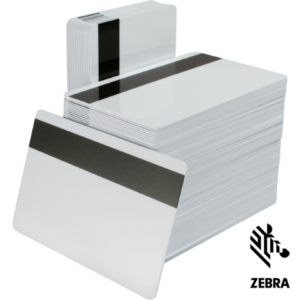 The benefits of RFID technology touch almost every industry in some way, but the positive impact RFID has within the healthcare industry is worthy of note. Whether you’re curious about how RFID helps the world work, or you’re working in the healthcare industry and eager to find out how RFID solutions can meet your needs, the first thing you need to know is that RFID integrates with healthcare in multiple ways. Take a look at the select benefits below to learn more about how RFID impacts healthcare.
The benefits of RFID technology touch almost every industry in some way, but the positive impact RFID has within the healthcare industry is worthy of note. Whether you’re curious about how RFID helps the world work, or you’re working in the healthcare industry and eager to find out how RFID solutions can meet your needs, the first thing you need to know is that RFID integrates with healthcare in multiple ways. Take a look at the select benefits below to learn more about how RFID impacts healthcare.
RFID Tracks Laboratory and Medical Supplies
Rather than spend costly time tracking each piece of medical equipment manually, RFID enables healthcare professionals to automate asset tracking so that they not only reduce loss, but reduce loss of time, thus improving efficiency, which in turn keeps costs down—as does the decrease in need to purchase replacement supplies.
RFID Enhances the Flow of Patients
Whether serving an ER, OR, or any other area of a hospital, RFID patient and staff tracking improves efficiency and patient service. By issuing active RFID tags to patients upon admittance to the hospital, their location can be tracked at all times. This allows hospital staff and administration to not only manage hospital and patient security, but also to see where patients are in the flow of their visit. RFID embedded in staff badges allows hospital administration to assure top-notch patient service, while permitting hospital staff to easily be able to find doctors, nurses, or anyone else working at the hospital.
RFID Reduces Medication Errors
According to HealthAffairs.org, the 2008 cost of “measurable medical errors” was over 17 billion dollars in the United States, and the most frequent of those was related to drugs. RFID is capable of decreasing the number of errors with medication administration in the healthcare system by providing checks and balances on the distribution of medicine. It works like this: When the patient or nurse goes to pick up a prescription within the hospital, RFID identification is scanned and matched to the barcode on the prescription. Because RFID technology fosters communication between a network comprised of Hospital, Lab, and Pharmacy Information Systems, errors in medicine distribution and administration can be minimized throughout a patient’s care.
Conclusion
RFID technology has the power to revolutionize businesses and organizations in a multitude of industries. Its capabilities within the healthcare sector touch the lives of everyone served by that system. More efficient, accurate care not only helps the patient, but also the hospital. Learn more about how RFID solutions from Gateway RFID Store can help healthcare organizations streamline patient care.
